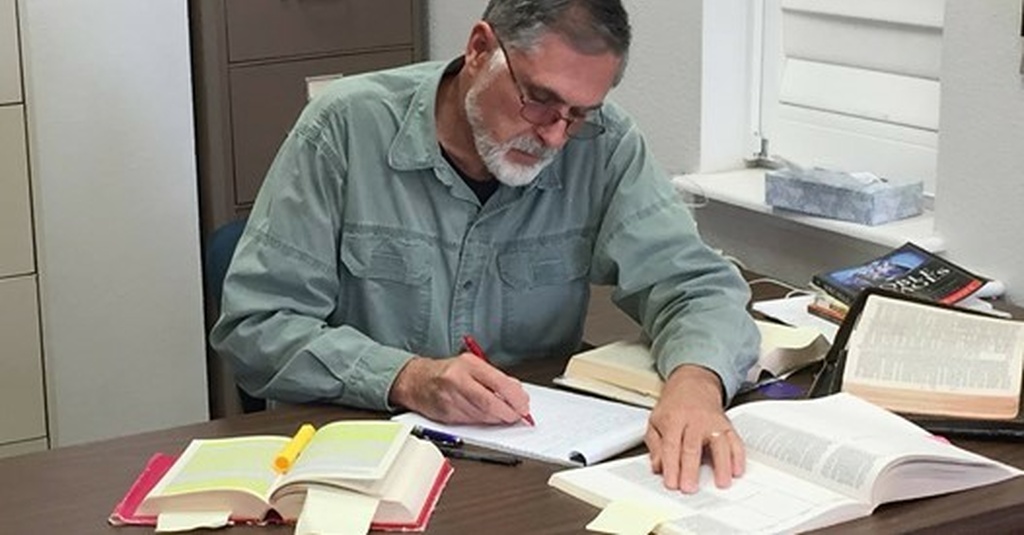
The Only Alternative to Humanism
The term “Christian Reconstruction” is merely an analogy of the responsibility of the Christian in a post-Christian culture. As humanism fails modern man, it must be replaced by a theocentric ethic. That is what theonomy represents.

- Mark R. Rushdoony
October 31 is Reformation Day, the anniversary of the posting by Martin Luther of 95 theses which he was willing to debate. His point was that these were errors in the church that needed to be openly discussed. His intent was, in fact, to “reform” the church, not to split it.
The Roman church, obviously, was not anxious to be reformed. Its first reaction was institutional. It tried to use its administrative power to silence Luther as a divisive rebel. Later, many of the abuses identified by Luther were quietly curtailed by Rome in what has been called the Catholic “Counter-Reformation,” but it was too little and too late.
In the late 1960s, my father, R. J. Rushdoony, began a long series of talks that were eventually published in 1973 as the Institutes of Biblical Law. That work began what is now called the theonomy movement. Like Luther’s posting of the Ninety-five Theses, it was intended as a movement toward reform within Protestantism.
As my father noted, the Protestant Reformation made a clear stand in correctly defining justification as an act of God’s grace which is received by faith alone. Institutes represented his vision for a new reformation based upon the earlier one. The new need for reform was, he believed, in an area not settled by the 16th century Reformation: the means of sanctification, man’s obedience and growth in grace. Various Protestant traditions had defined the means of sanctification differently; there was no consensus that came from the movement, and this vacuum had led to widespread fracturing within Protestantism.
My father’s call for reform was not welcome in many segments of the church. It was called a threat to justification by faith and the Reformed tradition or a political action plan.
This is where we stand now. Some believe that because theonomy and Christian Reconstruction have not gained a wider following, they have failed and should be abandoned. Such a pragmatic approach betrays a very real lack of understanding of the issues. The term “Christian Reconstruction” is merely an analogy of the responsibility of the Christian in a post-Christian culture. Our purpose is to rebuild what humanism has destroyed and we do so in obedience to the law-word of God. Theonomy means “God’s law” (theos=God; nomos=law) and it is the only alternative to humanism.
As humanism fails modern man, it must be replaced by a theocentric ethic. That is what theonomy represents.
We appreciate all who support us in the work of calling men back to the obedience God demands.

- Mark R. Rushdoony
Mark R. Rushdoony graduated from Los Angeles Baptist College (now The Master’s College) with a B.A. in history in 1975 and was ordained to the ministry in 1995.
He taught junior and senior high classes in history, Bible, civics and economics at a Christian school in Virginia for three years before joining the staff of Chalcedon in 1978. He was the Director of Chalcedon Christian School for 14 years while teaching full time. He also helped tutor all of his children through high school.
In 1998, he became the President of Chalcedon and Ross House Books, and, more recently another publishing arm, Storehouse Press. Chalcedon and its subsidiaries publish many titles plus CDs, mp3s, and an extensive online archive at www.chalcedon.edu. His biography of his father will be published later this year (2024).
He has written scores of articles for Chalcedon’s publications, both the Chalcedon Report and Faith for all of Life. He was a contributing author to The Great Christian Revolution (1991). He has spoken at numerous conferences and churches in the U.S. and abroad.
Mark Rushdoony has lived in Vallecito, California, since 1978. His wife, Darlene, and he have been married since 1976. He has four married children and nine grandchildren.